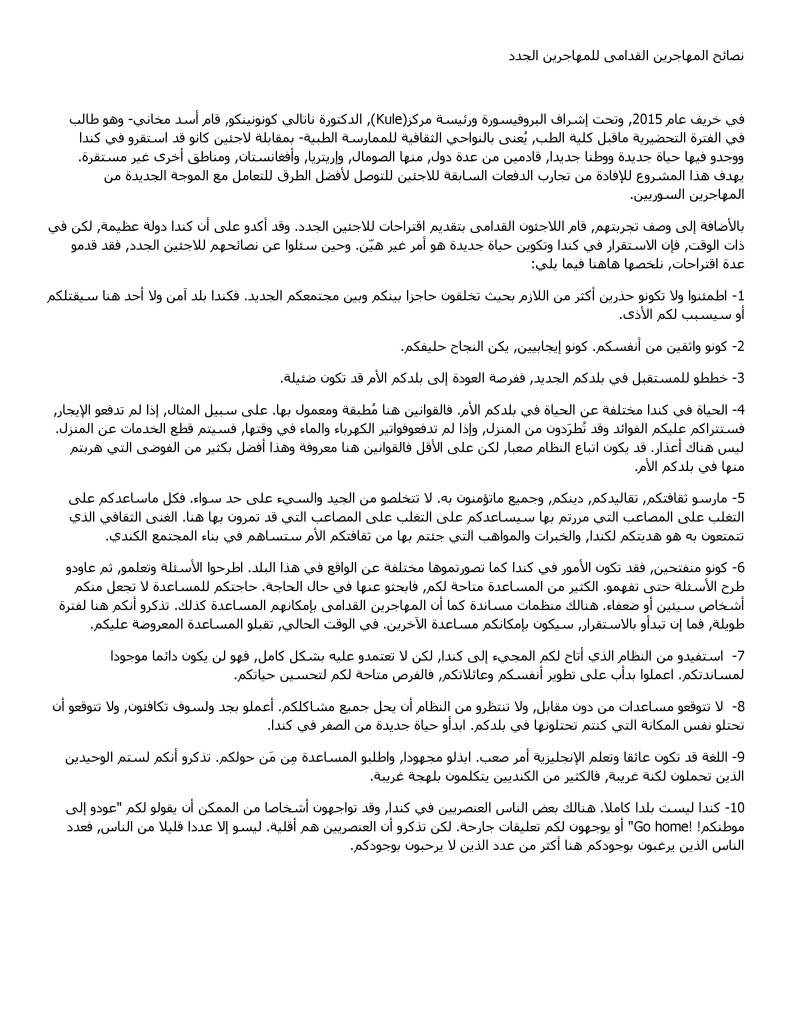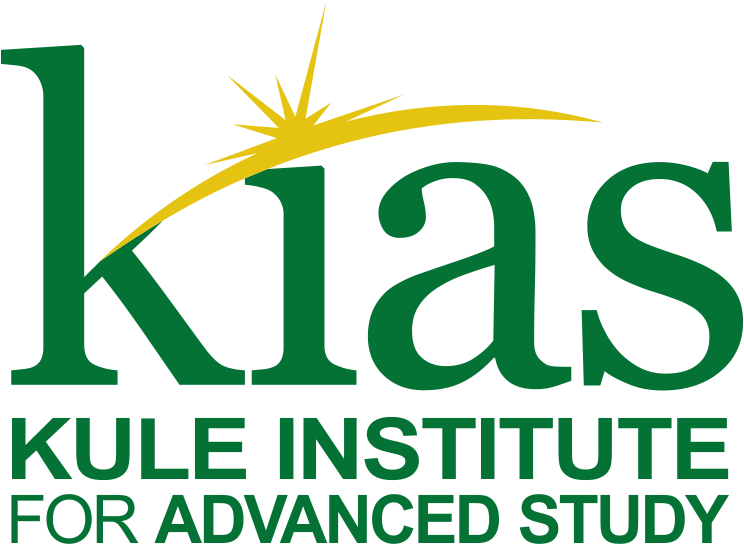In the fall of 2015 Asad Makhani, a student at the University of Alberta working on cultural issues in medicine under the supervision of Professor and Kule Chair Natalie Kononenko, began interviewing refugees already settled in Canada. These were people from Sierra Leone, Bhutan, Cambodia, and other areas of turmoil who had found a new home and a new life in Canada. The goal of this project was to use the experiences of earlier waves of refugees to develop best practices for dealing with the imminent influx of new, Syrian refugees.
In addition to describing their experiences, interview respondents offered suggestions to new arrivals. They stressed that Canada is a great country. At the same time, settling in Canada and establishing a new life is not an easy task. Asked for advice to new arrivals, the respondents offered many suggestions. A synopsis of their suggestions follows in both English and Arabic (translated into Arabic by Bashair Alibrahim):
1) Relax and do not be continually on guard. Canada is a safe country. Nobody is going to hurt you. Nobody is going to kill you. Being on guard can create undesirable barriers.
2) Have confidence in yourself. You can make it. Develop a positive attitude.
3) Plan for a long term stay. The chances of going back are small.
4) Life in Canada is not like life back home. The rules do apply and they will be enforced. For example, if you don’t pay the rent, you will be charged interest and you could lose your apartment. If you don’t pay your electricity or water bill on time, these will be disconnected. There are no excuses. Abiding by the rules is a challenge. But here you know the rules and this is so much better than the chaos back home that forced you to flee.
5) Cultivate your culture, your traditions, your religion, whatever you believe in. Do not discard the good with the bad. Whatever has helped you cope with the struggles that you have already gone through will help you cope with challenges here. The richness of your culture is a gift that you bring to Canada. The skills and talents that come with your culture will help you contribute to the community.
6) Keep an open mind. The Canada you imagined is probably not the same as the real Canada. Ask questions and learn. Ask again until you understand. There is help available. Seek that help. Seeking help does not make you a bad or a weak person. There are agencies that can help and refugees who came earlier can help as well. After you become established, you yourself will have a chance to help others. In the meantime, accept the help that is being offered.
7) Use the system that brought you to Canada and helped you settle here, but do not become dependent on it. It will not always be there for support. Work continuously to improve yourself and your family. You have the opportunity to change lives.
8) Do not expect a hand-out. Do not expect everything to be taken care of for you. Work hard and you will be rewarded. Do not expect to resume the position you had in your home country. Start a new, fresh life in Canada.
9) Language is an issue and learning English is hard. Work at it. Seek help from your community. Remember it’s not only you who has an accent. Canadians also have an accent.
10) Canada is not perfect. There are some racist individuals in Canada and you may run into them. These people may tell you to “go home!” and make other hurtful comments. Remember that racists are in the minority. They are a small number of people. There are more people in this country that want you here than those who don’t.
Asad Makhani is an undergraduate student, and Bashair Alibrahim is a PhD student in the Department of Modern Languages and Cultural Studies at the University of Alberta.





